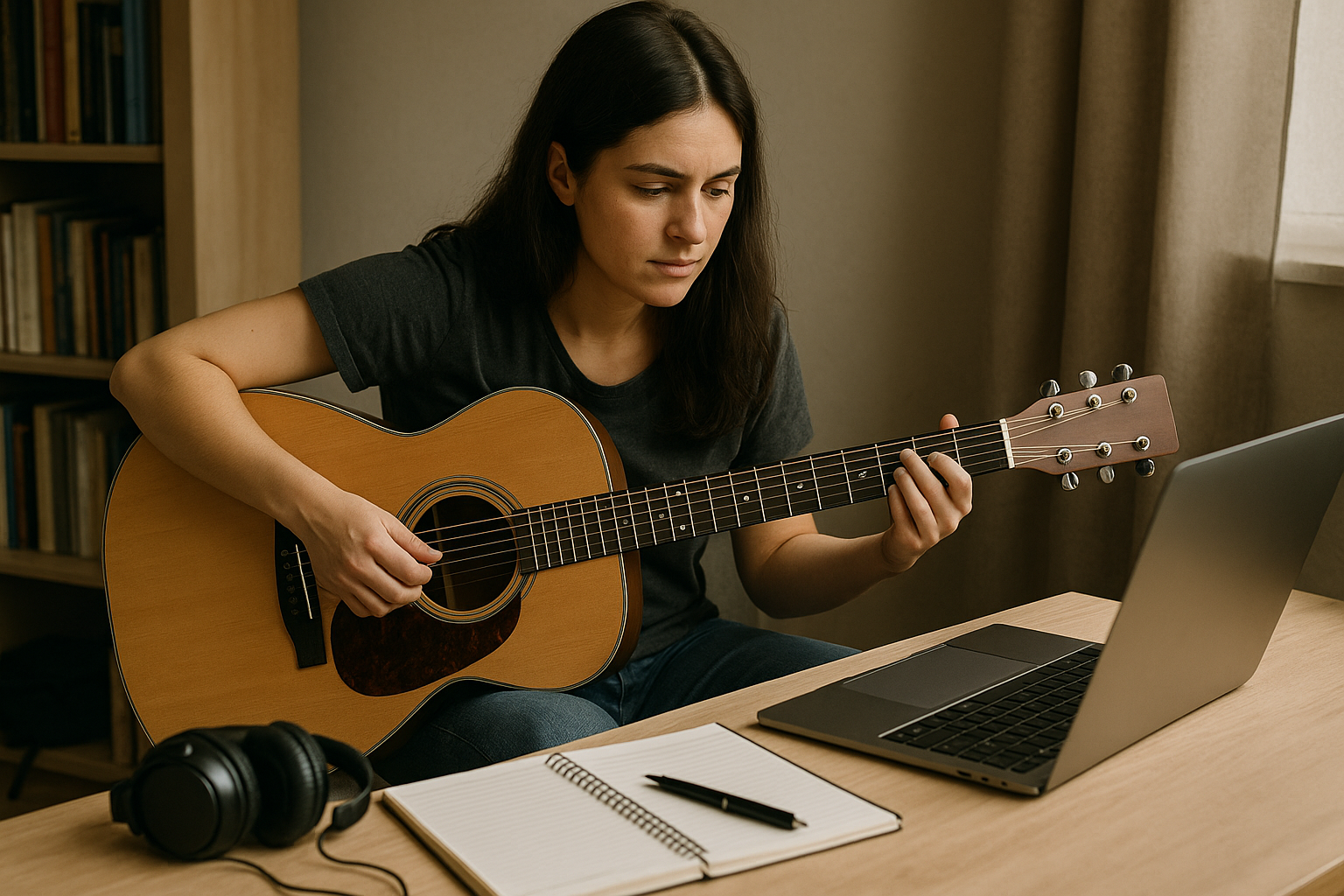Many people dream of learning music, but one of the most common barriers is the belief that it’s too expensive. Instruments can cost hundreds or even thousands of dollars, private lessons add up quickly, and extra expenses like sheet music or equipment make the dream feel out of reach. But here’s the truth: music is for everyone, not just those with big budgets.
In 2025, there are more resources than ever for beginners who want to start their journey without breaking the bank. From low-cost instruments to free online tutorials, you can begin building your skills and enjoying the beauty of music without spending much money. All it takes is creativity, consistency, and knowing where to look.
This article explores practical strategies to learn music on a budget, helping you get started no matter your financial situation.
Choosing Affordable Instruments
The biggest expense for beginners is usually the instrument itself. Fortunately, there are ways to get one without overspending.
Buy Used Instruments
Secondhand instruments are often just as good as new ones. Many people give up on music quickly, selling nearly-new instruments at much lower prices. Check:
- Local music stores with trade-in sections
- Online marketplaces like eBay, Craigslist, or Facebook Marketplace
- Community boards or school sales
Always test the instrument or bring someone experienced before buying.
Start Small
Instead of beginning with an expensive or professional instrument, choose a budget-friendly option:
- Keyboards instead of full acoustic pianos
- Entry-level guitars (brands like Yamaha or Fender’s beginner series)
- Ukulele as a cheaper, easy-to-learn alternative to guitar
- Recorder or harmonica for absolute beginners with very low budgets
Rent or Borrow
Many music stores offer rental programs, and borrowing from friends or family is another cost-free option. This lets you test whether you truly enjoy an instrument before investing.
Free and Low-Cost Learning Resources
You don’t need to spend hundreds on lessons. The internet has revolutionized access to music education.
Free Online Tutorials
Platforms like YouTube are filled with high-quality lessons. Many teachers create structured series covering everything from music theory to popular songs. Channels like JustinGuitar, Pianote, and Rick Beato offer excellent beginner-friendly content.
Apps
Some apps are free or offer affordable subscriptions:
- Yousician: Interactive lessons with real-time feedback
- Simply Piano / Simply Guitar: Beginner-focused and gamified
- Toned Ear: Free ear-training practice
Open Educational Resources
Websites like Coursera, edX, and even Berklee Online occasionally offer free introductory courses. These may not provide certification without payment, but the learning material itself is often free.
Libraries
Don’t forget traditional resources. Public libraries often carry books, sheet music, and sometimes even CDs or DVDs with lessons—all free with a library card.
Learning with a Community
Music doesn’t have to be a solo journey. Community connections often provide low-cost or free opportunities to learn.
- Community centers: Many offer group lessons or workshops at affordable rates.
- Schools or universities: Some have outreach programs or beginner classes for locals.
- Churches or community choirs: Singing groups are an accessible way to practice music without needing instruments.
- Online communities: Forums, Discord groups, and Facebook groups allow you to exchange tips, resources, and encouragement.
Playing with others builds motivation and reduces the need for constant private lessons.
Making the Most of Practice Without Spending More
Even if your resources are limited, you can maximize progress with smart practice habits.
- Consistency over duration: Practicing 15 minutes daily is more effective than a 2-hour session once a week.
- Record yourself: Use your phone to track progress. It’s free and incredibly useful.
- Use free backing tracks: Websites and YouTube provide tracks in every genre and key. Playing along helps improve timing and confidence.
- Create a practice journal: Writing down goals and progress doesn’t cost anything and boosts accountability.
DIY Music Solutions
Sometimes, making do with what you have sparks creativity.
- Homemade percussion: Buckets, cans, or even your desk can serve as practice drums.
- Digital instruments: Free virtual instruments and DAWs (digital audio workstations) like GarageBand or Cakewalk let you compose without owning expensive gear.
- Free sheet music: Websites like IMSLP provide public domain sheet music for classical works.
Affordable Paid Options
If you do want structured lessons, there are budget-friendly alternatives to traditional private lessons.
- Group lessons: Learning with others often cuts the cost in half (or more).
- Online subscriptions: Platforms like Fender Play or TrueFire are much cheaper than weekly private lessons.
- Pay-per-course sites: Udemy and Skillshare often run discounts, making courses accessible for under $20.
These options give you structured learning without long-term financial commitments.
Mindset: Turning Limitations into Strengths
Learning on a budget teaches resourcefulness. Instead of relying on expensive tools, you focus on the essentials: listening, practicing consistently, and making music with what you have. Many legendary musicians started with little but used creativity to grow their skills.
Remember, it’s not the price of your instrument or lessons that makes you a musician—it’s the time, effort, and love you put into learning.
Final Thoughts: Music Is for Everyone
Don’t let money stop you from pursuing music. In 2025, there are countless free or affordable resources available, from apps and tutorials to community groups and digital tools. Whether you’re learning with a secondhand guitar, a borrowed keyboard, or just your voice, you have everything you need to begin your journey.
Music isn’t about having the best equipment—it’s about expression, joy, and growth. With creativity, consistency, and a willingness to explore budget-friendly options, anyone can become a musician, no matter their financial situation.
So start small, use what you have, and let music become part of your life today.
